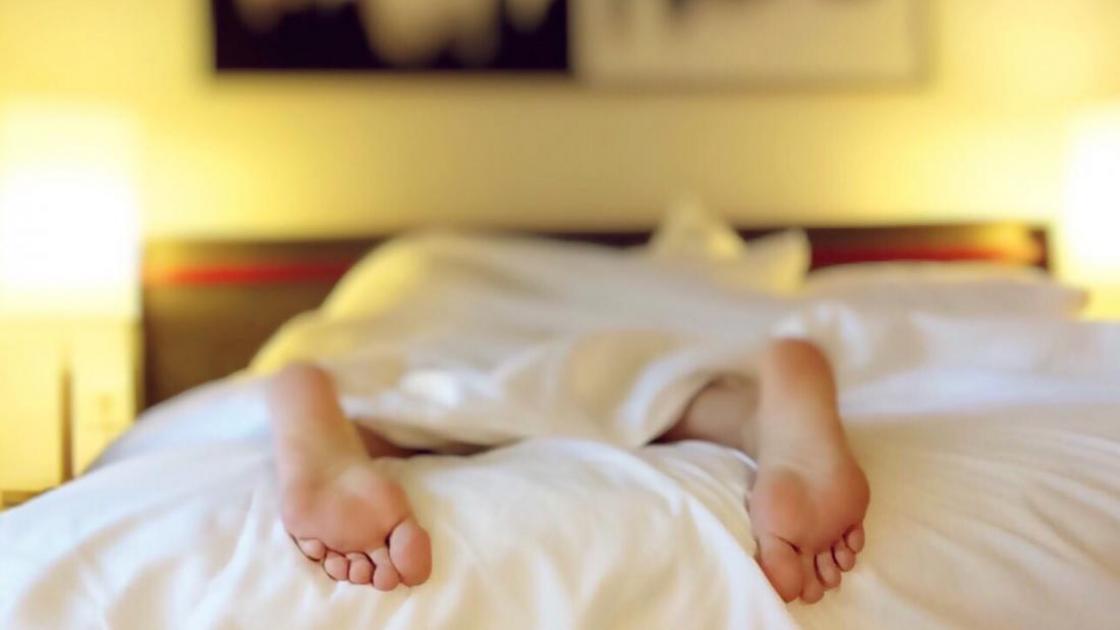
Can I please get some sleep? Natural ways to support healthy sleep
Written by Dr. Leslie Smith, MS, MA, LAc, MD, Director of Integrative Medicine, Director of Culinary Medicine at SIU Medicine
Insomnia is a common problem, particularly in women and aging populations. It is typically a transient issue but can evolve into a sleep disorder or be an indicator of more serious problems. If you’ve already been evaluated by your doctor and you are in the midst of a period of having a difficult time falling asleep or staying asleep, what can you do to help yourself? Here are some suggestions and tricks to help you get those healthy zzzzz’s.
Clean up your sleep hygiene
There is a little gland called the pineal gland that sits at the junction of the two nerves that bring the information from your two eyes to your brain. The pineal gland is responsible for secreting a hormone that helps make you sleepy, melatonin, as the sun goes down. In the daytime, when your eyes are receiving a lot of light, the release of melatonin is inhibited, and you feel more awake. As your eyes see less and less light, the pineal gland is less inhibited and releases more melatonin—making you sleepy in the evening. This means that if you are shining a lot of lights in your eyes in the evening (watching TV, looking at a computer screen or phone for the last few hours before bed, leaving lots of lights on in your home), your pineal gland can’t do its job to release melatonin. The solution to this: turn down the lights, turn off the TV, put down the computer or phone for a few hours before bedtime. It may also help to get black-out curtains, get rid of night lights, and direct any light that you are using to read onto the book and away from your eyes directly. Set your body clock by going to bed at the same time every night and getting up at the same time every morning, even on the weekends. Try to avoid naps in the late afternoon or early evening so that your body feels tired, rather than refreshed, as bedtime approaches.
Chamomile can help you unwind
Avoid stimulants such as caffeine and sugar in the evening. Most people know caffeine is a stimulant: we use it to wake up, so it should be avoided in the evening. Most people are not aware that it is a bad idea to eat a big bowl of ice cream and then try to go to sleep. The same is true for eating heavy meals right before bed. Not only does putting a big meal in your stomach right before laying down raise the possibility of heartburn and indigestion, but the amino acid tyrosine, which is high in meat, stimulates brain activity. Not a great choice when you are trying to get your brain to shut off and let you sleep! If you like a little something in your stomach before bed, try soothing chamomile tea instead. Chamomile is widely known for its calming effects. If you are looking for a small snack later after dinner, try tryptophan-rich foods such as nuts, seeds, bananas, honey or eggs: tryptophan is another amino acid, but this one is very calming to the nervous system.
Alcohol only makes it worse
Alcohol may help you fall asleep faster, but it disrupts the circadian rhythm and sleep cycle. It also puts your brain waves into a more wakeful state, so that you are more likely to wake up with little noises in the house. Finally, alcohol can make night sweats and hot flashes worse, particularly in the night. You can dilute alcohol’s effects with drinking a glass of water for every glass of alcohol, but of course, trips to the bathroom in the night are then in your future. If you have difficulty sleeping, it is best to avoid alcohol 4-6 hours before bedtime.
Clear your mind and relax your body
Try to do something relaxing for the 30 minutes - 1 hour prior to bedtime. Even if watching television is a good relaxation tool for you, try not to watch a violent, dramatic, or emotionally intense show right before sleep. Ideally the television should be off prior to and during sleep. Better examples of things to do for relaxation would be meditation, yoga, reading, stretching, or deep breathing. Try relaxation techniques such as tightening every muscle in your body and gradually releasing them sequentially from your head all the way down to your toes. You can also make a list of things you need to do the next day right before you shut off the light. This signals to your brain that you don’t have to keep thinking about it as you are falling asleep. Keep a small pen light next to the bed to jot other things down in the night if you wake up with ruminating thoughts. One of my favorite meditation techniques is a “humming meditation.” It is exactly what it sounds like: making a hum in the back of your throat at a single pitch (like a chant of “Om”). I like to visualize that the hum comes up from my throat to the top of my head and fills my brain. From there, with each breath, I visualize the hum filling each area of my body as it descends slowly down to the soles of my feet. I envision that the sound that I am making with my hum is reverberating through all the cells in my body—rocking and singing them to sleep.
Use acupuncture points
The center of the bottom of the heel is known to be a very powerful point to help with sleep, as is the area just below the ankle bone on the inside (medial) of your ankle. (To see a picture of where this point is, you can search for “Kidney 6 acupuncture point” on the internet.) It’s easy to give yourself a little foot massage right before bed to stimulate these points. What I’m about to tell you is a little tricky to describe, but is another technique to use if you wake up in the night. When you are laying on your back, you can use the heel of the right foot to rub the inside of your left ankle in little circles: this massages and stimulates both of the acupuncture points at the same time. Bonus: you don’t have to sit up in bed to do this. I like to do this exercise very slowly and count the number of circles as I’m doing it in the same way that one might count sheep. After you reach your target number, you can switch to the other foot. You can massage your scalp gently, focusing on the area in a little depression or groove just behind your earlobe (“acupuncture point an mian” to see where this is). And you can use acupuncture points on the inside of your wrists (“pericardium 6 acupuncture point”) to help calm your heart and release anxiety.
Talk to your doctor
Sometimes medications that you are taking for other reasons can affect your ability to sleep: talk to your doctor to find out if medications may contributing to your insomnia. There are several vitamins and minerals that can impact sleep. Low magnesium levels can contribute to insomnia, and low potassium levels can lead to easy wakening in the night. Vitamins B6, B12, K, and D, and the mineral calcium can impact your sleep. Talk to your doctor to find out if vitamin/mineral testing or supplementation is right for you. If struggling with sleep has been going on for some time, you may have a more serious sleep disorder. Your doctor can help you determine whether you need additional evaluation and what kinds of treatments might work well for you.



